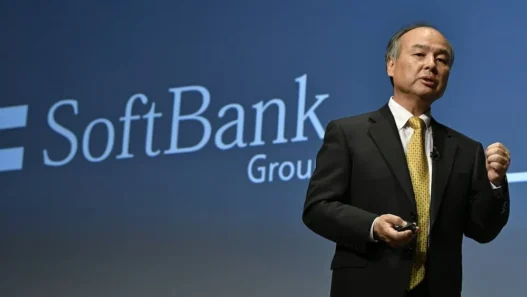HSBC Holdings PLC, the London-headquartered banking giant, has completed a $14 billion buyout in Hong Kong, marking one of the largest transactions in its recent history and reinforcing the bank’s strategic focus on Asia. The move comes amid a record-breaking year of mergers, acquisitions, and investments for HSBC, signaling both confidence in the region and a renewed push for growth after years of global restructuring.
The acquisition strengthens HSBC’s presence in Hong Kong, where the bank has historically had deep roots dating back over 150 years, while positioning it to capitalize on Asia’s expanding wealth management, corporate banking, and digital finance markets.
The Deal in Detail
The $14 billion buyout centers on HSBC’s purchase of a major regional asset management platform, which brings both scale and diversification to the bank’s Hong Kong operations. The acquisition provides:
- Expanded wealth management capabilities for high-net-worth clients.
- Increased market share in corporate banking and financial services across Greater China.
- A stronger digital platform for retail and commercial banking, leveraging the acquired firm’s technology and customer base.
Industry analysts note that this buyout not only consolidates HSBC’s competitive position in Hong Kong but also signals the bank’s intent to double down on Asia at a time when many Western banks have been retreating from the region.
A Year of Aggressive Growth
HSBC’s Hong Kong buyout is part of a broader strategy that has made 2025 one of the bank’s most exuberant years for expansion:
- Earlier in the year, HSBC announced investments in regional fintech startups, enhancing its digital banking and payments capabilities.
- The bank has pursued strategic alliances and partnerships across Southeast Asia, focusing on markets such as Singapore, Malaysia, and Indonesia.
- HSBC has increased its capital allocation to Asia, redirecting funds from less profitable European operations to growth markets in Hong Kong, China, and India.
These moves reflect HSBC’s long-term strategy: leveraging its historical presence in Asia while modernizing its services to meet the demands of high-growth markets and tech-savvy clients.
Why Hong Kong Matters
Hong Kong remains a vital hub for banking and finance in Asia, despite geopolitical and economic uncertainties. The city serves as a gateway to mainland China, offering access to international capital markets, wealthy clients, and corporate banking opportunities.
HSBC’s latest acquisition strengthens its position in:
- Wealth Management: Hong Kong is home to a growing population of high-net-worth individuals seeking investment and financial planning services.
- Corporate Banking: The bank can now offer more comprehensive services to multinational corporations and Chinese companies expanding abroad.
- Digital Banking: Integrating modern fintech solutions will help HSBC attract younger, digitally fluent clients.
Analysts suggest that HSBC’s focus on Hong Kong reflects both a defensive strategy against declining profits in traditional European markets and an offensive push to dominate in Asia’s fastest-growing financial centers.
Financial Implications
The $14 billion deal is expected to be accretive to earnings within two years, according to HSBC’s management. Key benefits include:
- Revenue growth from increased client bases and cross-selling opportunities.
- Operational synergies from integrating technology and back-office functions.
- Market leverage in wealth management and corporate banking sectors.
Investors have responded positively to the announcement, with HSBC shares rising on the day the buyout was completed. The bank’s focus on strategic expansion, particularly in high-growth regions like Hong Kong, signals confidence in Asia’s long-term economic potential despite global macroeconomic challenges.
Challenges and Considerations
While the acquisition is ambitious, HSBC faces several challenges:
- Regulatory scrutiny: Hong Kong and Chinese regulators maintain strict oversight of banking transactions, requiring careful compliance.
- Geopolitical tensions: The bank must navigate the ongoing U.S.-China and regional trade tensions, which could affect cross-border banking and investment flows.
- Integration risks: Combining operations, technology platforms, and corporate cultures can create short-term disruption.
HSBC’s management has indicated that careful planning and phased integration will minimize risks, while emphasizing the long-term strategic benefits of the deal.
Conclusion: A Statement of Confidence
HSBC’s $14 billion Hong Kong buyout represents more than just a financial transaction — it is a signal of the bank’s renewed commitment to Asia, a bet on the resilience of Hong Kong as a financial hub, and a demonstration of strategic foresight amid a volatile global banking landscape.
As the bank continues to consolidate its operations and invest in growth markets, 2025 is emerging as a landmark year in HSBC’s modern history — one characterized by bold acquisitions, technological investment, and a clear pivot toward Asia, positioning the institution for sustainable expansion in the years ahead.






















